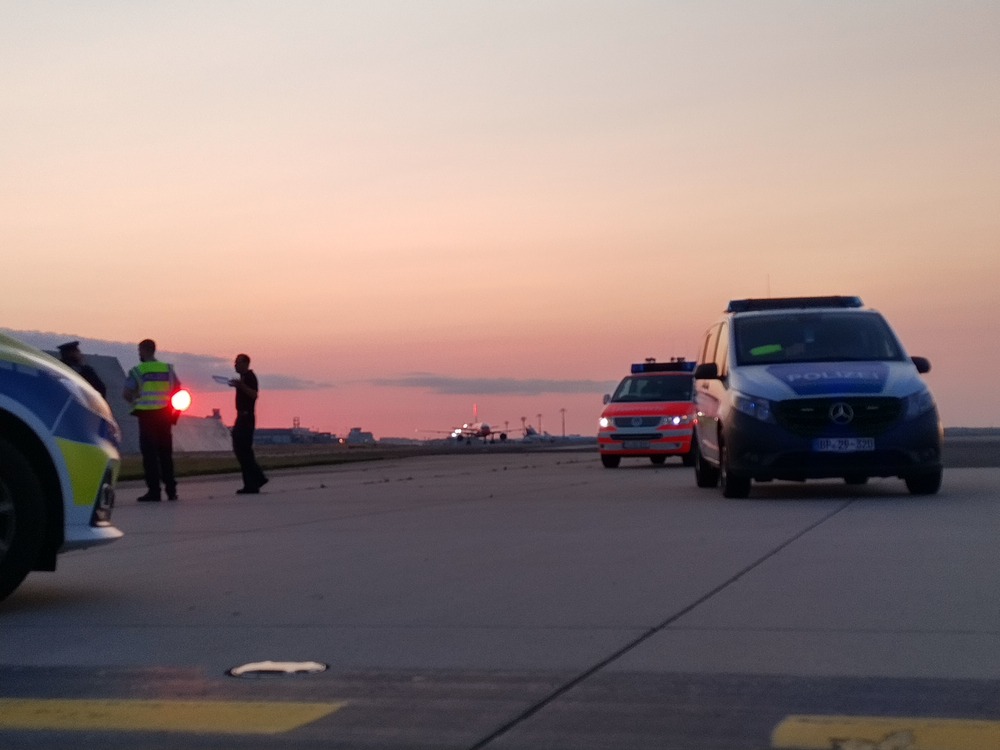Green representatives have written an open letter to the European Commission President, Ursula von der Leyen, demanding she ends border controls in Germany.
The reason cited for the demand was Germany’s current border control practices, which, the Greens claimed, were not in keeping with the Schengen agreement.
“We are turning to you today with concerns about the stationary border controls with Poland, the Czech Republic, Austria and Switzerland introduced by the Federal Ministry of the Interior,” the Green politicians wrote in the letter, quoted by German news agency dpa on August 12.
“The EU Commission must ensure compliance with the law.”
“In addition, a new expert report shows that the intended effect of border controls and related success reports are very questionable and in many cases not statistically proven.”
The politicians alleged that there were indications of what they believed to be unlawful rejections, among other concerns.
Greens MEPs, MPs and local State representatives have co-signed the letter.
EC spokesperson for home affairs Anitta Hipper told Brussels Signal that the body had received the letter.
She added that the Commission has always been clear that any and all attempts at border enforcement within the Schengen zone must be in keeping with the agreement.
“In line with the Schengen Borders Code, reintroducing border controls must be necessary and proportionate,” Hipper said.
“As such, this type of measure must remain exceptional, strictly limited in time and a last resort, in case a serious threat to public policy or internal security has been established.”
“According to the Schengen Borders Code, a Member State may reintroduce internal border controls in view of addressing a serious threat to public policy or internal security, when this is necessary and proportionate,” Hipper added.
“The Commission and the Schengen Co-ordinator are working closely with all the Member States that currently have internal border controls in place, notably in view to identify possible alternatives.”
Germany is part of the Schengen Agreement covering an area in which internal border checks have largely been abolished.
The Schengen Borders Code allows members to reintroduce temporarily controls at their internal borders in the event of serious security threats.
Germany temporarily reintroduced border controls during the Euro 2024 football championship, during which time it had anticipated that close to three million people would attend the matches.
Amid ongoing wars in Ukraine and Gaza, authorities were fearful of potential related violent incidents.
Despite the claims by the Greens that the border checks were ineffective, the authorities were more positive about their results, saying they had detained a large number of illegal immigrants, suspected criminals and extremists.
Over the Euro 2024 Championship period, 1,112 arrest warrants were made, with 110 wanted persons “with links to politically motivated crime” were detained.
Some 230 smugglers were also arrested. Overall, about 8,300 unauthorised entries were registered.
The German Federal Police rejected “thousands of these illegal migrants,” the country’s interior ministry has said.
After the end of the football tournament, most border controls were lifted, except some of those bordering Poland, the Czech Republic, Austria, and Switzerland.
In reaction to the dropping of many border controls, the German Police Trade Union (DPolG) said the decision to discontinue them was “wrong.”
“The Federal Minister of the Interior is acting mechanically and ideologically and not adapted to the situation. Above all, the elimination of controls to the Netherlands is extremely dangerous for NRW [North Rhine-Westphalia] in view of the current escalating gang crime by the dreaded ‘Mocro Mafia’,” the police said in a press statement.
DPolG Federal Chairman Rainer Wendt said it was “a sad joke” to assume that terror suspects, smugglers and other criminals would take secured spots, when they can reach Germany comfortably and relatively risk-free via other borders.
“Free travel for criminals and terrorists is completely unacceptable. The claim that the Federal Police can no longer carry out the controls is downright absurd — it is the core task of the Federal Police to protect our borders,” Wendt said.
“The gang crime, which is currently escalating with kidnapping, torture and explosive attacks, would also be a concrete justification for maintaining border controls. When killer commandos enter our country and carry out their bloody trade, border controls must be tightened rather than stopped.”
Extreme violence connected to organised crime is reaching new heights in the German city of Cologne. According to police, this is in large part due to the so-called “Mocro Mafia”. https://t.co/EOv2SztfEo
— Brussels Signal (@brusselssignal) July 10, 2024





